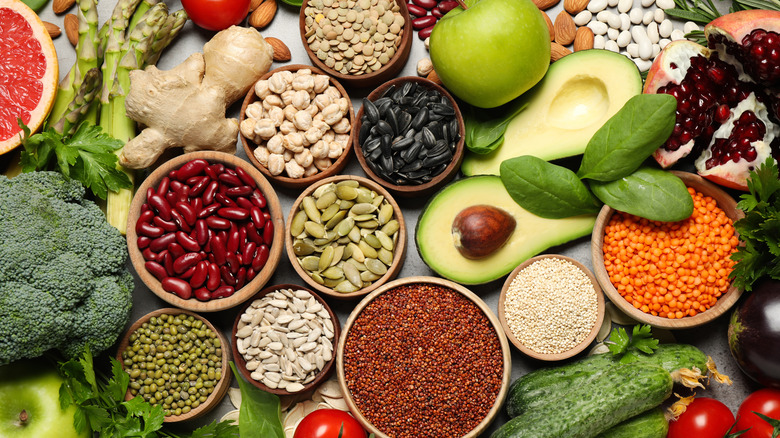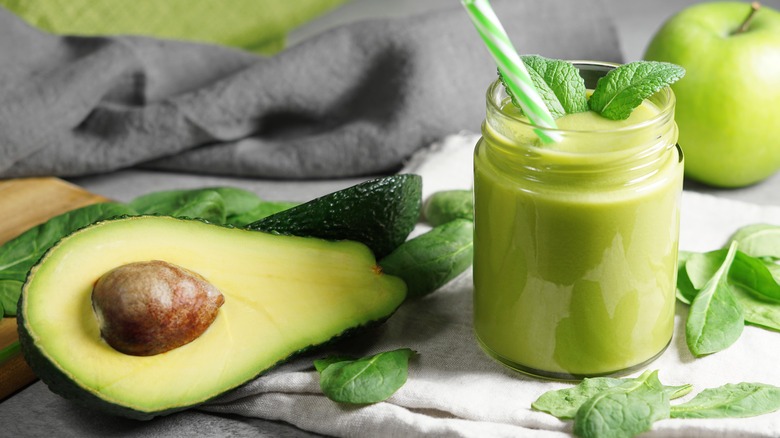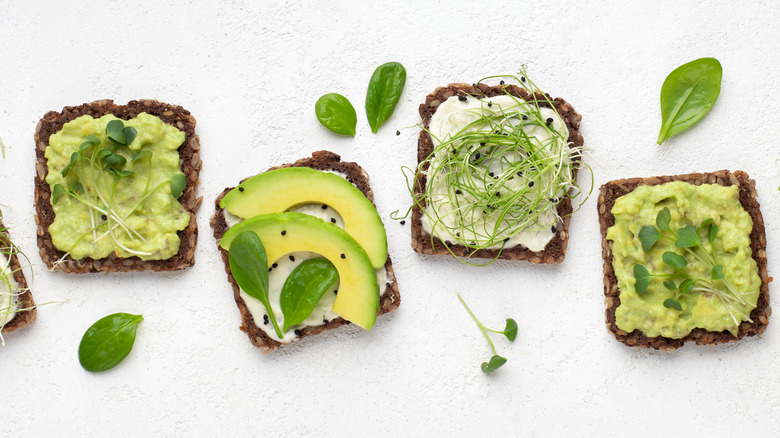The One Food Olympic Athletes Depend On During Training
There's no denying that a healthy lifestyle can positively alter the way your body works. The World Health Organization states that a well-balanced diet can help you fight off chronic afflictions like heart disease, diabetes, and cancer. Eating more of things like legumes, fruits, vegetables, and lean proteins could help pump your body up with all the necessary vitamins and nutrients that it needs (and then some). No one understands the importance of a healthy diet for the body more than athletes (and their coaches, of course). Athletes have to live by a somewhat strict code when it comes to staying healthy and maintaining their physiques, so it is no surprise that they are constantly eating meals that are extra high in nutrients, minerals, and all the other good stuff their bodies may need. According to Eat This, Not That!, there is one food that basically every athlete swears by. What may that be, you ask? The creamy avocado. The publication notes that top athletes like tennis pro Naomi Osaka, Paralympian volleyball player Kaleo Maclay, and Olympic swimmer Katie Ledecky all love munching on this oh-so-yummy food.
Avocados are a great source of nutrients for muscles
But what makes avocados so good for you? Eat This, Not That! explains that avocados are jam-packed with monounstaurated fats and electrolytes (like potassium and magnesium) that help muscles in recovery, and help keep them from cramping. While everyone knows that avocados can be extra delicious, they also carry a fair amount of fiber and protein that keep athletes performing their best during their workouts. Avocados From Mexico notes that avocados carry up to four grams of protein and can contain almost twice as much potassium as bananas. Athletes will also benefit from the folic acid (also known as vitamin B9) found in this green fruit, as it can help regulate hormones, in particular the body's growth hormone that aids in the building of overall muscle mass. Raw Pressery details that the fiber found within avocados can also help athletes shed excess fat as well. How do they manage this? Avocados From Mexico cites that the dietary fiber can keep us fuller for longer, and helps regulate the body's blood glucose level. Avocados also contain a little thing called beta-sitosterol, which is a lipid that helps the body manage stress (goodbye stress snacking!).
There can be drawbacks if over-consumed
Everyone knows that moderation is key, and avocados are not exempt from that philosophy. The University of California San Francisco (UCSF) cites in a report that the overconsumption of "good fats" like avocado and olive oil might lead folks to develop chronic afflictions like fatty liver disease, hypertension, and type 2 diabetes. A study that was conducted by the bright minds at UCSF found that a diet high in starches and monosaturated fats led mice to develop afflictions that were once thought to only occur with the overconsumption of saturated fats. In fact, the starch and monosaturated fat diet gave the mice the worst cases of fatty liver disease. So, according to the researchers, calorie counting doesn't cut it when one is trying to avoid diseases like those that manifested within the mice. Associate research biologist at the UCSF Liver Center, Caroline C. Duwaerts, notes that, "A calorie is not simply a calorie. What that calorie is made up of is extremely important."


